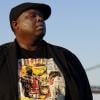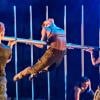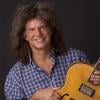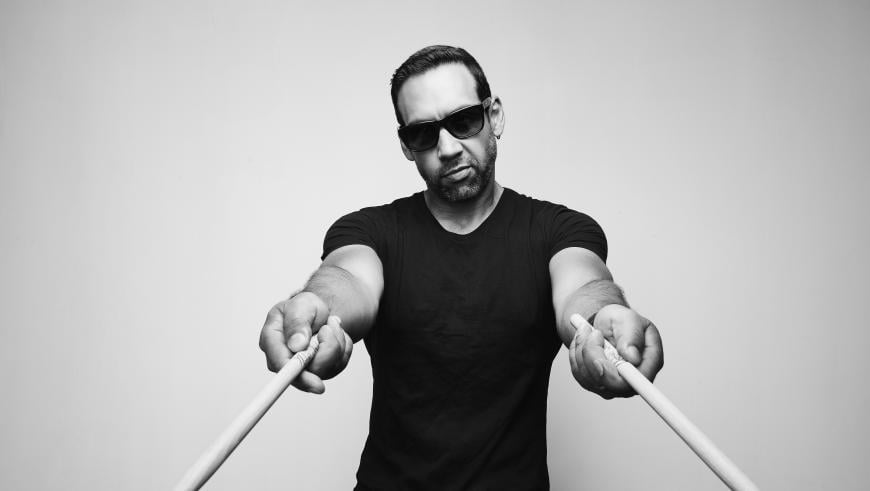
It’s a rare film score that features only one musician. But Birdman, which snagged the Oscar for Best Picture at the 87th Academy Awards in 2015 and features music composed and performed by percussionist Antonio Sánchez, is precisely that rara avis. Indeed, Sánchez, who won a Grammy Award for his soundtrack for Alejandro G. Iñárritu’s film, has been performing the music live ever since. He will be at BroadStage in Santa Monica on April 20 as part of a five-city U.S. tour commemorating the flick’s 10th anniversary.
Born in Mexico City in 1971 to a cinematic family — his grandfather, who died last year at 98, was the much-admired Mexican actor Ignacio López Tarso, and his mother was a film critic — Sánchez began playing the drums at age 5 and performing professionally while in his early teens. He went on to study classical piano at the National Conservatory in Mexico and jazz at Berklee College of Music and New England Conservatory.
After moving to New York City in 1999, Sánchez soon became one of the most in-demand drummers on the international jazz scene. In addition to collaborating with guitarist and composer Pat Metheny for some 18 years, including recording nine albums and copping three Grammys with the Pat Metheny Group, Sánchez has also recorded and performed with the late pianist Chick Corea, vibraphonist Gary Burton, and the late harmonica ace Toots Thielemans, among many others.
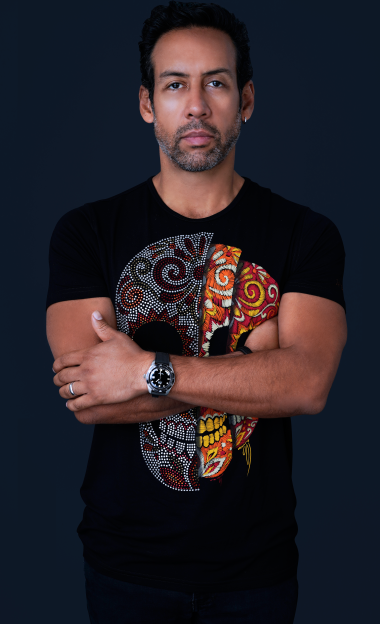
In 2015, Sánchez released the celebrated recording The Meridian Suite, which was followed in 2018 by Lines in the Sand, a tribute to the journey of migrants heading to the U.S. border. In January of this year, the Barcelona-based Sánchez and his wife, Grammy-nominated vocalist Thana Alexa, played The Soraya, premiering their original score for Existencia, a dance work from choreographer Jacques Heim and Diavolo | Architecture in Motion, commemorating the 30th anniversary of the Northridge earthquake.
SF Classical Voice caught up with Sánchez by Zoom from New York, where the acclaimed musician was preparing for his current tour.
You come from a family steeped in films, but instead of following in those footsteps, you went into music. Why?
I grew up around music all the time thanks to my mom, especially rock ’n’ roll. She’s a flower child from the Woodstock generation, and she loved the Beatles, the Stones, Jimi Hendrix, Janis Joplin, Led Zeppelin, Santana. She would listen to all these great bands, and my grandfather listened to classical music a lot — and Frank Sinatra.
My uncle had a girlfriend, and she had a friend whose brother was a drummer. I had music in my bones, and one day I saw this guy’s drum set, and it looked like a beautiful spaceship. I had sounds in my head, [so] it felt like a natural connection with the instrument. I was 5 years old and started taking lessons with him. They would be very basic — how to hold the sticks — and I would play along to the records I liked from the bands I mentioned. That’s how I fell in love with a drum set very quickly.
OK, fast-forward nearly four decades to Birdman. How did that gig come about?
Iñárritu saw me performing with Pat Metheny in 2005 at [Los Angeles’] Universal Amphitheatre. We met after the show, [and] I didn’t know [who he was]. He was going on and on [about] how a Mexican was playing with Pat Metheny and how cool that was. I asked him, “What do you do?” He said, “I direct films and commercials.”
I wasn’t particularly impressed, assuming everybody directs in L.A., so I asked if there was anything I might have seen. He mentioned 21 Grams, Amores perros. I thought it was super cool. We hit it off, and we stayed in touch. One day I was in Miami with my wife, coming out of a concert, and my phone rang. I saw his name; I picked up.
“I’m working on my next film, and it’s going to be a dark comedy. You want to do it?” he asked. “Yes, yes.” I hung up, and from elation comes complete terror — because I realized I was going to do a Hollywood film with just drums. I had never done a movie or TV score, but I knew, with his guidance, it was going to be OK.
What was it like working with Iñárritu, and what was the process?
The process was unorthodox. We got together in a studio in New York before they started shooting the film. With just the help of the script, we went through the whole film together, scene by scene, in great detail, and he would have me improvise. I asked him to sit in front of my drums and imagine the scene so we could have similar timing. I asked him to raise his hand to signify the next scene. I would see him raise his hand, and that would mean the character opened the door and was walking down the hallway — something like that.
We did the whole movie like that. Those were demos, and after a rough cut [of the film was done], they brought me to L.A. and showed me what they did. Alejandro had specific notes from the demos [of] what worked, what he wanted more or less of. We were looking at the film with different intentions, but they used some of the original demos.
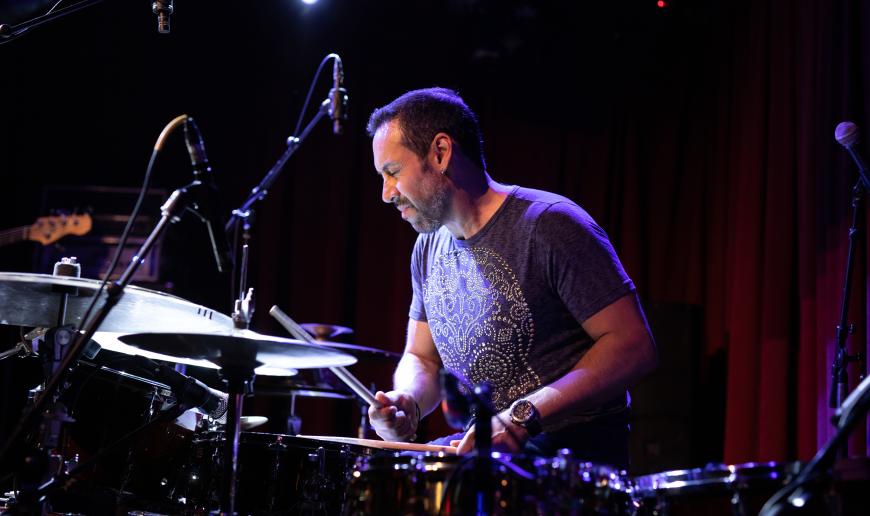
You’ve actually done a number of these Birdman Live shows. Is your performance still improvised?
The first show was before the Oscars, in 2014 at [L.A.’s] Ace Theatre. They wanted to do a round of publicity, and that’s when they thought it would be good to do [the music] live. [Michael] Keaton came, and it was super cool. We hung out a bit, and from there I did it in New York. Everybody thought it was a good idea to take it on the road, and I do at least two to three [of these] shows a year.
The whole thing was improvised from the get-go. I wanted to stay true to the spirit but try to remain faithful to the dramatic effect. Every time it’ll be different, but it’s based on the same things — like a jazz concert.
You met your wife, Thana Alexa, at a Carnegie Hall concert in 2008, when you were playing with the late Croatian singer Oliver Dragojević.
[My wife is] Croatian and was there with her mom. She knew of my work [and] was studying jazz at The New School. We [connected] the old-fashioned way: on Myspace! She wrote that she saw the concert. She liked it [and said that] it would be great to talk about music. I have to say, I saw her pictures on Myspace and said, “Yes, of course.” She was gorgeous, and we’ve been married 15 years.
You also compose with her. What is your process — working on the Existencia score, for example, which was stunning?
Being a composer is a very solitary environment. You’re with yourself, your thoughts, your mistakes, second-guessing everything, trying to see what sticks. With someone else, it’s nice to bounce off ideas. With Existencia, she would do certain things, and I would do certain things. That piece had voices, lyrics, and we would find the basic structure of something together. She would go off by herself and write lyrics, adding layers and doing things to get it ready for live performance. We hit our stride quickly.
We have a nice studio with a few keyboards, guitar, bass, mandolin, ukulele, oud. I use different sounds to try and layer [a score]. If I’m writing for myself, an album, the process is very different, and I don’t have to run it through anybody; there’s no visual element.
For TV or film, it has to go through a bunch of different people. I’m trying to get the vibe, and I try to talk to the director or creator — see what they’re expecting — and I start experimenting with different things. I have a big arsenal of sounds with digital and analog synthesizers, and of course, I have the drums. A lot of times I start with drums and fill in. Or there are voices that inspire me, that I feel go well with a certain scene, and I start filling it in.
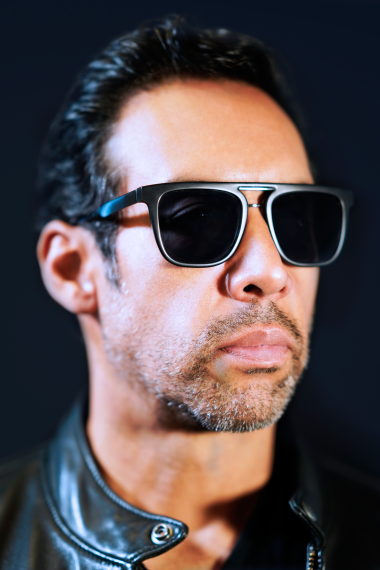
And you still do a lot of touring.
Yes, but it’s a little too much for my taste because nowadays it’s very hard to plan for things. We can plan to tour in Europe, but maybe it doesn’t happen or line up, but something came up in China or Hong Kong. We have to chase the money all over the world. It’s interesting, but it’s a hard life. Percentage-wise, I try to travel less now, and thankfully, I make more money with less work.
Fifteen years ago, I was busting my ass and not making that much. Birdman was a great launching pad. With film and TV scores, you get to stay home. [Birdman] also brought a lot of commercial work. I just did a Lacoste [sportswear] campaign [featuring] Venus Williams and [Novak] Djokovic that [airs] in April.
What advice do you have for aspiring drummers and/or film composers?
To drummers, there’s no shortcuts. A lot of people now are infatuated with social media and want to post videos of them looking super cool. That gets them followers, but that’s not real artistry; it’s not real drumming. There is no shortcut: Study hard, pay your dues, do a lot of hours of work.
For film composers, it was such a fluke for me. I wasn’t looking for it, I wasn’t interested in it, and I wasn’t at all trying to be a film or TV music composer. This just fell in my lap. Thankfully, it was a great film and an interesting score, so I [say], “Just keep going.” But for me, it’s also been a problem because I’m typecast as “the guy who does drums.” I want to get out of that, too, so people can see my other talents. It’s happening more as time goes by, but it’s an uphill battle.


